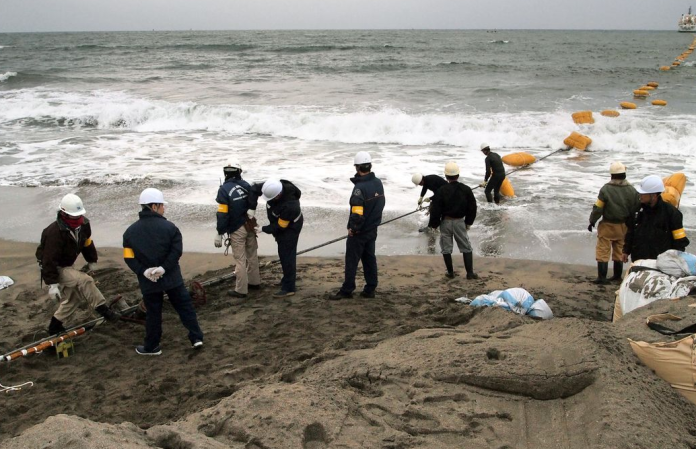US officials are sounding the alarm about the potential security risks that Chinese repair ships pose to undersea cables, the WSJ reports.
The cables, essential for both commercial and military communications, could be vulnerable to unauthorised access by vessels operated by S.B. Submarine Systems, a state-controlled Chinese company.
Undersea cables constitute the critical infrastructure that provides the global Internet and telecommunications network. They carry almost all international data traffic, including Internet, telephone, and military communications. They connect continents and ensure uninterrupted data transmission around the world.
Underwater cable espionage involves the unauthorised interception, manipulation or tampering with these cables to access sensitive data. Such espionage may be carried out by state actors, criminal organisations, or other entities seeking to exploit valuable information transmitted over these cables.
With physical access to the cables, spies can tap into the data streams and intercept communications. This requires specialised equipment and expertise, but can yield vast amounts of information.
Suspicious actions
Repair ships tasked with repairing damaged cables may become involved in espionage. During repairs, cables are brought to the surface, making them vulnerable to the installation of surveillance devices or other interference.
State Department officials have noted the strange behaviour of the repair ships of S.B. Submarine Systems. The ships frequently disappear from radio and satellite tracking services with no clear explanation.
This suspicious activity has raised concerns that these vessels may be deliberately hiding their movements, potentially engaging in covert operations.
Silicon Valley tech giants, such as Google and Meta Platforms, which own and invest heavily in these undersea cables, rely on specialised construction and repair companies. However, some of these companies are foreign-owned, which US officials fear could jeopardise the security of sensitive data.
The Biden administration’s inspection of Chinese repair vessels is part of a broader effort to counter China’s maritime activities and technological advances in the Western Pacific.
Warning to technology companies
US officials have made their concerns known to major technology companies, including Google and Meta. They emphasised the potential threats posed by Chinese companies. Shanghai-based S.B. Submarine Systems was specifically mentioned in the discussions. It is a key player in the cable repair industry in the region.
The safety of submarine cables is fundamentally dependent on the transparency and reliability of the organisations involved in their construction, maintenance and repair. The National Security Council emphasised the importance of satellite tracking of vessels to ensure vessel monitoring and safety. The Council noted that the non-transparent behaviour of some Chinese repair vessels posed a serious security threat.
Despite the concerns, Google and Meta spokespeople declined to comment. Some industry insiders speculate that gaps in the company’s ship location data may be due to technical problems. They also note that cable owners often have representatives aboard repair ships, making covert activity difficult.
Data anomalies
Data from commercial vendor MarineTraffic shows that ships such as the Fu Hai, Fu Tai and Bold Maverick periodically disappear from tracking systems while operating in sensitive regions such as Taiwan and Indonesia. Those data gaps alarmed US officials, who fear the ships could engage in activities such as covertly eavesdropping on data streams, spying on US military communications, or stealing intellectual property.
China’s rapid military buildup in the South China Sea has heightened American concerns about the vulnerability of undersea cables. US intelligence has long been wary of the potential espionage risks associated with the maintenance and repair of these critical infrastructures.
The US government has taken steps to mitigate these risks by funding new undersea cables and ensuring that critical repairs can be carried out by trusted organisations.
The security of undersea cables remains a pressing concern amid a changing geopolitical landscape. US officials are particularly vigilant about cables transmitting sensitive military data, even if encrypted, because they often run through commercial internet links.
